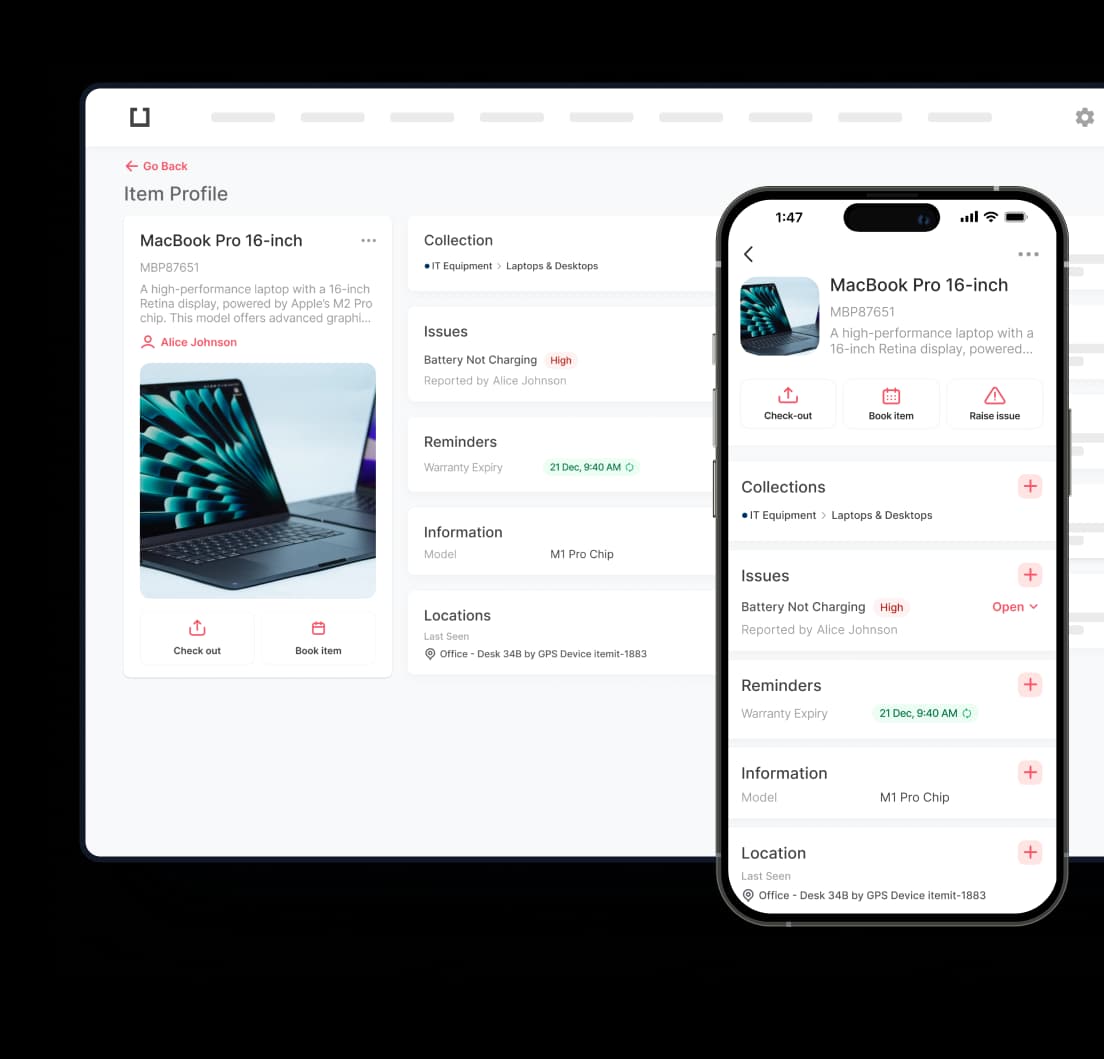Game development companies have high-value assets including props, top-end laptops, and consoles. Therefore, if you don't lose a single asset because you're using asset tracking software, it's possible you've already made a return on investment.
Tracking these assets is essential, which is why asset tracking software is a critical tool.
How Does Asset Tracking Software Work?
Tracking software allows you to create a digital log of each of your assets. On this digital profile, you can add asset information and data and instantly retrieve it.
All of this data is pulled into an asset register that you can edit, manage and export with ease. This way, you can see asset trends and helpful information, such as who is responsible for which assets.
So, if you're looking to see which employees have older laptops and which employees have newer ones, you can create a filter to view this information.
Why Track Game Development Assets?
So, why should you track game development assets? The answer is clear: they're expensive. Moreso than that, if you're scanning in 3D models or using motion capture technology, it's not unlikely that your assets are unique.
With no visibility over your laptops, props, models or consoles, mistakes are much more likely to occur. Gaining this critical visibility allows you to view where your assets were last seen and who was using it last, allowing you to pinpoint thousands of pounds worth of kit.
When you track game development assets, therefore, you can prevent misplaced assets, duplicate purchases, create retrieval processes, improve asset assignment processes and more.
What Kind Of Assets Can You Track?
Another benefit of asset management software is that you can log any assets onto this system. There's no limit to the type of asset. Then, once you've logged your asset, you can bulk up that asset's profile with customisable data.
This means that any department can use your asset tracking software and you can extend your return on investment as much as is possible. So, you can create fixed asset management processes alongside IT asset management processes and track props and cameras and sound equipment.
The possibilities are endless, and, in game development, due to the nature of the range of assets, you can stretch your return on investment incredibly far by gaining visibility and accountability over a massive amount of equipment.
itemit's Asset Tracking Software
itemit's asset tracking software is a flexible system that you can share with your colleagues. This level of shareability means that you can split the system between different departments and track different assets.
The customisability you get with itemit provides you with a high return on investment, as you can track any number of different types of asset in any number of ways.
This is why itemit is used worldwide across industries. Our support team will gladly set you up and ensure that you're getting the most money out of the system possible.
To find out more, you can contact the team at team@itemit.com. You can also fill in the form below to start your 14-day free trial.




